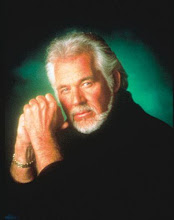Our bones are living tissue that are continually being renewed and repaired. As we age we tend to forget why it is important to have good health and nutrition. Bones are affected by diet and exercise, and need to be kept strong on order to prevent osteoporosis, which is a disease where bones become weak and brittle.
Calcium makes strong bones and vitamin D helps calcium to be absorbed into bones. Thus it is very important to eat a healthy diet with enough calcium and vitamin D. As a teenager, your daily recommended requirement of calcium is 1000 mg and vitamin D is 100(IU). A balanced diet would provide you with enough nutrients to meet your requirement, but there are also calcium supplements available if you eat on the run a lot.
Calcium-rich foods include low-fat milk, calcium-enriched soybean milk, cheese, low-fat yogurt, almonds, tofu, fish with soft bones such as sardines; green leafy vegetables such as kale or spinach and fruits such as papaya or raisins.
The best way to obtain sufficient vitamin D is to go outdoors when the sun is up and get at least 30 minutes of sunshine a day. Vitamin D can also be obtained in foods like egg yolk, liver and fish.
Calcium is needed for you to build strong bones. Your bone is made up of more than 50% calcium. It is therefore important to have sufficient calcium in the diet to build strong bones.
You do have to build up the calcium in bones early. More than 60% of total bone mass is built up by age 18. It peaks by the time you reach age 30, and then you begin to lose more bone mass than you build. So, it is important to build your bone mass when you are young.
As women reach their 60’s, they are more prone to getting osteoporosis. The risk factors include:
Being over 65 years of age, a family history of osteoporosis, are menopausal or have had ovaries removed. Don’t consume enough calcium in their daily diet, don’t exercise regularly, or drink too much alcohol.
Osteoporosis occurs when bone is lost faster than it is replaced. When this happens, your bones become weak and brittle and are less able to withstand stresses such as falls. Thus it is very important to eat a healthy diet with enough calcium and vitamin D.
The daily recommended requirement of calcium women from 19 to 50 is 800mg. After 50 it goes up to 1000mg.Routine x-rays cannot detect osteoporosis until there is a lot of bone loss. As you reach senior status you might opt for a Bone Mineral Density (BMD) scan, to measure bone density at the hip and spine. It is the best way to detect early loss of bone mass.
Showing posts with label osteoporosis. Show all posts
Showing posts with label osteoporosis. Show all posts
Wednesday, September 3, 2008
Subscribe to:
Posts (Atom)


